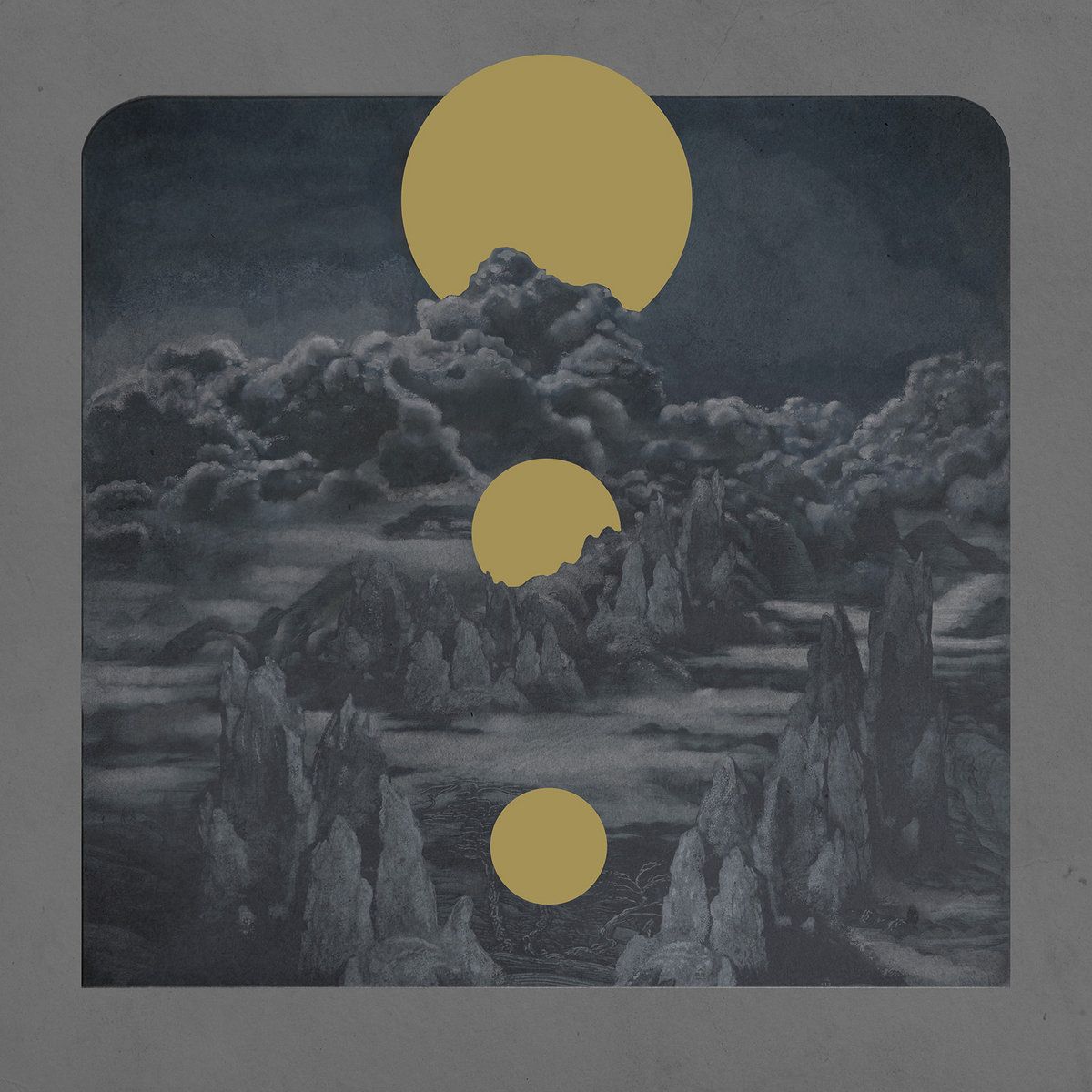Clearing the path to ascend

When I first started having my symptoms, the ones that sent me to the hospital and kicked off this whole ordeal, I was also becoming obsessed with the band Yob. For years, I didn’t get them. I gave their album Atma a pretty poor review when it came out, and everything I heard from them after didn’t click with me. I’d even seen them live and left the show early, feeling like the band simply wasn’t for me. But then something changed.
My symptoms were still new to me—the blurred vision, the disequilibrium, the feeling like my mind was slipping away from me—and for whatever reason, I put on The Great Cessation. I was floored. I worked backward, and I found even more albums that resonated with me. This band that I’d long written off was suddenly giving me something I couldn’t find elsewhere. Then, I learned of the tumors on my carotid arteries, and I couldn’t help but feel like something was guiding me toward them before I was even aware of it.
For those not in the know, or those that don’t care about the band, Yob’s songwriter Mike Scheidt, nearly died before the release of their last album, Our Raw Heart. He was rushed into the hospital and had to undergo emergency surgeries to save his life. I knew this story, one that writers loved to trot out over and over when discussing the band, and while I respected his resolve through all of it, his music still left me cold.
Until it didn’t.
What has been the most taxing part of all this is not the physical symptoms that have impacted my daily life, but the mental strain that has come along with it. For the past month I’ve felt, as uncouth as this is to say, totally crazy. Doctors have told me that my symptoms don’t make sense, or worse, they’ve told me that what I’m feeling isn’t real. I know I feel bad, and that I’m able to live at about 70% by adjusting my daily routine so I’m only doing about 40% of what’s normal, but it’s also meant juggling my own fears and those of everyone else I know.
It makes sense why everyone wants to talk about what’s wrong with you when you’re sick, because everything else feels small by comparison. The train being crowded, or sitting in traffic for an hour, doesn’t feel like something others can voice when they could reach up and feel a tumor in your neck—you can do this if you want, it’s a nice party trick for the time being—but that’s not how I want things to be. Despite starting a newsletter that’s about all of this, I still have the same interests I did before anyone knew anything was wrong. I still like music a lot, I still laugh at dumb videos online, and I still have a craving for Taco Bell that I’m always tamping down. But we don’t talk about any of that. I give you a short rundown of what’s happened, and then the conversation trails off. That’s because of me. And it sucks.
So far, only one person has asked me if I’m afraid of dying. You may think that’s rude or tasteless, but for those of you not in the know, I grew up in a funeral home. If anything, that’s just practical. I’ve been dealing with death my whole life, both as a formality of my family’s chosen profession, and through friends and family members passing on. (Brief tangent: I know a lot of writers and journalists hate euphemisms for death, but I think that’s stupid. If the job is to describe something, maybe there’s more to it than what’s plainly there. Anyway…) While it’d be easy to think I’ve become desensitized to the end of life, I’d argue the opposite. I understand it and know what that looks like, and that’s not scary to me. What is horrifying is the space between life and death.
Throughout this whole process, I’ve been reassured that I’m not currently at risk for a stroke, which is a very good thing! However, all surgeries have risks. And given where my tumors are, removing them isn’t the simplest procedure. It’s not the most dangerous either, but, as I said, there are risks. They could nick an artery, hit a nerve that causes paralysis, or trigger a stroke. What comes after that is what scares me. Losing all independence forever, having to watch my friends and family care for me when I can no longer care for myself, those things terrify me. If I die on the operating table, I’ll never know it. But if I wake up and am different, that’s something I’ll have to carry until the day that I actually do die. Everything I know of my life will have changed in a flash, and there’s nothing that can be done about it. The pillars I’ve built my life upon will have crumbled, and people will no longer tell me, “You’ve got this! Everything’s gonna be fine!” They’ll pity me and offer sympathy, then they’ll stop coming around. Their faces will sink when they see me or when they hear my name. I know this, because I’ve watched it happen more times than I can count. You tell me what’s scarier.
Over the past few years, I’ve gotten to watch three of my family members, three people I loved, die in ways that I’ve found inspiring. Trust me, I know how ludicrous that sounds, but please stick with me.
The first was my grandfather Walter, my mom’s dad. My grandpa was a tough-as-nails guy who liked collecting sports cards, caring for his dog, and driving his giant Crown Victoria 20-miles below the speed limit no matter where he was. He was effectively deaf after years of working in a steel mill and refused to wear his hearing aids, so every conversation we had for the last decade of his life was screamed for no other reason than his own obstinance. I think this all explains a lot about me.
When he died, he was getting out of bed to let his dog out. His heart gave out, and he was dead before he hit the floor. When I heard the news, I cried reflexively, then quickly started to feel differently. I was still crushed that my grandpa was gone, as he was one of the most supportive and generous souls I’d ever encountered, but I was also at peace that he did everything his own way right up until that moment. There was no visual decline. He never became a burden. For the entirety of the time I knew him, he was a stubborn, joyous, crank of a man. He went out on his own terms, which I know is exactly what he would have wanted.
On my dad’s side of the family, I watched my Uncle Larry and Aunt Barbie go out in similar ways. After Larry was diagnosed with stage-four cancer, which also brought about the discovery of a deadly heart condition, I rekindled a relationship with him and his wife, Barbie. Having not seen my father in over a decade at this point, opening this door wasn’t something I expected, but I’m very lucky that’s what happened. With Larry given six months to live, he made it two years. There were bad days, but he was the same Larry I always knew.
One thing I vividly remember is going to their house (above one of the funeral homes) and asking if he was going to get treatment or not. He told me the doctors thought his heart was too weak for it, and with a shrug, he just looked at me and said, “That’s fine. I’ve already done everything I’ve wanted with my life. Everything that comes next is just a bonus.” When he died, Barbie called me, and I offered my condolences. But there was no undercurrent of sadness. There was a strange kind of gratitude emanating from both of us, knowing Larry got to call the shots until he couldn’t anymore.
The last conversation I had with Barbie was a month before she died. On the phone, she said to me, “When I go, I just want it to be over. I don’t want to know it’s coming.” When I learned that she had died in her sleep a month later, I was happy to know she had gotten her wish. There was no fanfare, no prolonged battle, it was just over. It’s the way it should have been.
Maybe people don’t see these stories the same way I do. Death is tragic and difficult and sad, but it’s also beautiful if you’re looking at it from the right angle. Walter, Larry, and Barbie showed me that.
Wait, wasn’t this post about Yob? Yes, it was! And I swear, this is more than some cheap framing device.
Over the past year, even before I got into his band, I appreciated how Mike Scheidt accepted the fact that every interview for the rest of his life will be about his illness. It became his art, even if only somewhat peripherally, and now that will be what he’s known for no matter what he does next. He’s built a deep catalog of material and only seems interested in pushing forward, but that blip a couple years ago will inform how everyone looks at him and interacts with his work from now until the end of time. But he takes it in stride, content in the fact that it’s part of the story, so he might as well own it and try to learn something from it.
I guess that’s what inspired me to be doing this thing. My hope from the start of this has been to not only keep people updated, and maybe help others struggling with similar experiences, but as a way to face it all head-on. My life is different than it was even two months ago, but I’m still trying to find ways to appreciate the little things that make this whole experiment called “being alive” worthwhile. I’ve reminded myself to look up and see the beauty of the sky, or to be fully present during a dinner with friends, and, more than anything, to appreciate my time with Nina, the person who I love more than words can accurately describe.
I may not be in charge of what happens next, and I’m learning to make peace with that. Because, whatever it is, I’ll be ready for it.

